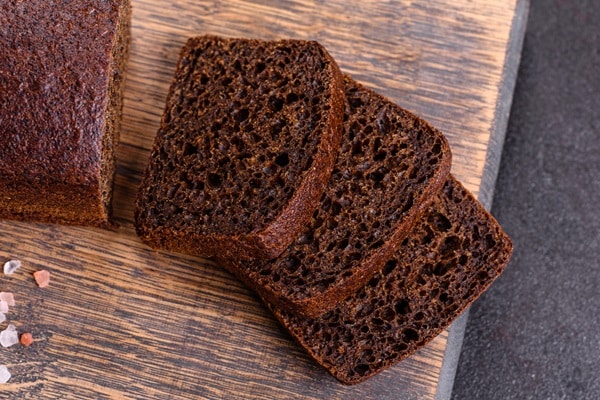Carbohydrates, often simply called carbs, are a crucial part of any diet, yet they are frequently misunderstood. This essential macronutrient comes in various forms, each with its unique impact on health, energy levels, and overall well-being. The distinction between ‘good’ and ‘bad’ carbs is not just about weight management; it’s a matter of understanding how different types of carbohydrates affect the body. This article delves into the intricacies of carbohydrates, shedding light on what makes some carbs better than others and how to make informed choices for a healthier lifestyle.
Contents
Understanding Carbohydrates

Carbohydrates are more than just a source of energy; they are vital for the proper functioning of the body. They are classified into two main types: simple and complex. Simple carbohydrates, often found in fruits and milk, are composed of basic sugars and are quickly absorbed by the body, providing immediate energy. Complex carbohydrates, on the other hand, are found in foods like whole grains and legumes. They are made up of longer chains of sugar molecules, which take longer to digest, thus providing a more sustained energy release.
The role of carbohydrates extends beyond just providing energy. They are essential for the proper functioning of the brain, kidneys, heart muscles, and the central nervous system. Carbohydrates also play a crucial role in digestion and metabolism. The body breaks down consumed carbs into glucose, which is then used as the primary fuel source for various bodily functions. This highlights the importance of choosing the right type of carbohydrates in one’s diet to maintain optimal health and energy levels.
Glycemic Index And Carbohydrate Quality

The glycemic index (GI) is a valuable tool for understanding how different carbohydrates affect blood sugar levels. Foods with a high GI are rapidly digested and absorbed, causing a quick spike in blood sugar and insulin levels. Conversely, low GI foods are digested and absorbed more slowly, gradually increasing blood sugar. This distinction is crucial for managing energy levels and can be particularly important for individuals with diabetes, who need to monitor their blood sugar closely.
High GI foods typically include processed and refined products like white bread, cakes, and some breakfast cereals. These foods can lead to rapid fluctuations in blood sugar levels, potentially leading to energy crashes and cravings. On the other hand, low GI foods, such as whole grains, legumes, and most fruits, provide a more steady energy supply and keep you feeling full longer. Understanding the glycemic index of foods can help in making healthier carbohydrate choices that support stable blood sugar levels and overall well-being.
Nutrient Density

Nutrient density is a critical concept when evaluating the quality of carbohydrates. Nutrient-dense foods provide vitamins, minerals, fiber, and other beneficial compounds, in addition to calories. Carbohydrates high in nutrient density, such as whole grains, fruits, and vegetables, offer more than just energy; they contribute to overall health by providing essential nutrients needed for the body to function optimally.
In contrast, ’empty-calorie’ carbs, often found in sugary drinks, pastries, and other highly processed foods, offer little nutritional value despite their high caloric content. Regular consumption of these low-nutrient carbs can lead to weight gain and may increase the risk of health issues like heart disease and diabetes. Incorporating nutrient-dense carbohydrates into the diet is not only beneficial for maintaining energy levels but also crucial for overall health and well-being. These foods ensure that the body gets the necessary nutrients it needs while satisfying hunger and supporting healthy bodily functions.
Fiber Content

Dietary fiber, found in carbohydrates, plays a significant role in maintaining health. Fiber, especially the type found in whole grains, fruits, and vegetables, aids in digestion and can help prevent constipation. It also plays a role in controlling blood sugar levels and can aid in weight management by promoting a feeling of fullness. High-fiber carbohydrate sources are essential for a healthy diet, contributing to overall digestive health and well-being.
The difference in fiber content between various types of carbohydrates is substantial. Refined carbs, such as white bread and pastries, have most of their fiber removed during processing. This not only diminishes their nutritional value but also impacts how they are digested and absorbed by the body. In contrast, unprocessed or minimally processed carbs retain their fiber content, providing the benefits of slower digestion, more stable blood sugar levels, and prolonged satiety. Opting for high-fiber carbohydrate sources is a smart choice for anyone looking to improve their dietary habits and maintain a healthy digestive system.
The Impact Of Processing On Carbohydrates

The way carbohydrates are processed significantly affects their nutritional value and impact on health. Processing often involves refining and stripping away beneficial components, such as fiber, vitamins, and minerals. This results in refined carbs, like white bread and pasta, which have a higher glycemic index and lower nutrient content compared to their whole-grain counterparts. The removal of fiber and other nutrients during processing not only diminishes the health benefits of these carbs but also affects how they are metabolized by the body, leading to quicker spikes in blood sugar.
Moreover, processed carbohydrates are frequently accompanied by added sugars, unhealthy fats, and sodium, which further detract from their nutritional value. These additions can contribute to various health issues, including obesity, heart disease, and diabetes. On the other hand, whole, unprocessed carbohydrates retain their natural fiber and nutrient content, offering a more balanced and healthful option. Choosing whole grains over refined grains is a simple yet effective way to improve the quality of carbohydrates in the diet, promoting better health and well-being.
Balancing Carbs In Your Diet

Incorporating healthy carbohydrates into one’s diet requires a balance. It’s not just about choosing whole grains over refined grains; it’s also about portion control and the overall composition of meals. A balanced diet includes a variety of nutrient-dense carbs, such as fruits, vegetables, legumes, and whole grains, in appropriate portions. This diversity ensures that the body receives a wide range of nutrients, including fiber, vitamins, and minerals, essential for optimal health.
To reduce the intake of less healthy carbs, it’s advisable to gradually replace processed and high-sugar foods with healthier alternatives. For instance, swapping white bread for whole-grain bread or sugary cereals for oatmeal can make a significant difference. It’s also important to be mindful of the carb content in meals, balancing them with proteins and healthy fats to ensure a well-rounded diet. These strategies improve the quality of carbohydrates consumed and contribute to better overall health and energy levels.
Carbohydrates And Overall Health

The quality of carbohydrates consumed has a profound impact on overall health. High-quality, nutrient-dense carbs are associated with numerous health benefits, including improved heart health, better weight management, and a reduced risk of chronic diseases like type 2 diabetes. These carbs, being low in added sugars and high in fiber, contribute to better blood sugar control, lower cholesterol levels, and a healthier weight. This underscores the importance of choosing the right types of carbohydrates for long-term health benefits.
Debunking common myths about carbohydrates is also crucial. Carbohydrates are often wrongly vilified and blamed for various health issues, leading to many fad diets promoting extremely low carb intake. However, it’s the type and quality of carbs, rather than their mere presence in the diet, that matters most. Understanding this distinction helps in making informed dietary choices, ensuring that carbohydrates are consumed in a way that supports rather than hinders health. Embracing a balanced approach to carbohydrate consumption is key to maintaining a healthy lifestyle.
Elevate Your Diet With Smarter Carb Choices
Understanding the nuances of carbohydrates is essential for making informed dietary choices. The distinction between ‘good’ and ‘bad’ carbs lies in their glycemic index, nutrient density, fiber content, and the degree of processing they undergo. Opting for whole, unprocessed, nutrient-dense carbohydrates offers numerous health benefits, including stable blood sugar levels, improved digestion, and reduced risk of chronic diseases. Balancing carbohydrate intake with other nutrients and being mindful of portion sizes further enhances their positive impact on health.


